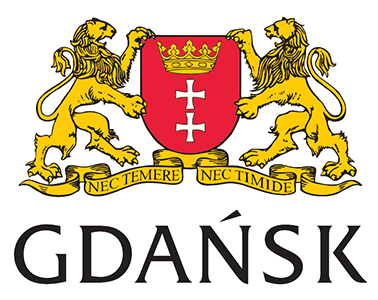The music of Brahms does not shake you, does not force you to wonder about the meaning of life,
it does not humiliate you with its magnitude or wisdom.
It calms you, sometimes draws a tear, but it’s a happy tear.
If it is true that music can make a man better,
then certainly Brahms’ music does it best.
Ludwik Erhardt: Brahms
The wonderful New Year’s Day concerts in the Vienna Philharmonic Hall have been a must for music lovers all around the world for years. This year, the most beautiful waltzes will also be performed by the Polish Chamber Choir on 19 February at Gdańsk’s Artus Court.
Everyone associates the waltz with Vienna and large orchestras, perhaps also with masterpieces by Fryderyk Chopin. In fact, this elegant dance has its roots in the folk music of southern Germany and may be played not only in instrumental versions. The Saturday concert will take us to the elegant salons of the 19th century.
The concert will begin with 18 short pieces by Johannes Brahms jointly titled the Liebeslieder Waltzes. Their lyrics are poems by Georg Friedrich Daumer from his Polydora collection. Influenced by Schubert’s Ländler, the composer wrote his waltzes inspired by his feelings for Klara Schumann. Their relationship: difficult, stormy, unfulfilled, is reflected in melodies full of all kinds of moods. The composer’s love dilemmas are perfectly illustrated by one of the lyrics by Daumer he used: “Oh women, what bliss you bring! I would have become a monk long ago if it were not for women!” (O die Frauen).
The second part of the concert will feature three absolute hits by Johann Strauss the Younger, known as the Waltz King not without reason. Strauss’s melodies were an inherent feature at the salons of Viennese high society in the 19th century and remain popular to this day. Vienna Blood, Voices of Spring and The Blue Danube were originally written for orchestra. In 2002, they were arranged by distinguished German composer Heinrich Poos for choir and piano for four hands, specially commissioned by Jan Łukaszewski. Heinrich Poos’ collaboration with the Polish Chamber Choir was very special and had already spanned thirty years, during which the ensemble not only performed his works in Poland and throughout the world but also sang the world premieres of his many compositions.
The Polish Chamber Choir will be accompanied by pianists Monika Płachta and Magdalena Żak de Carvalho, artists who play many concerts and are educators at the Academy of Music in Kraków. They have played in Gdańsk before, in 2018, when they performed Johannes Brahms’ Ein Deutsches Requiem together with the Polish Chamber Choir.
Brahms wrote: “I must admit that this was the first time I smiled at the sight of my piece in print! You can call me an ass if those Liebeslieder of ours won’t bring pleasure to a couple of people.”
We hope that those people will be you.
tickets available at bilety24





